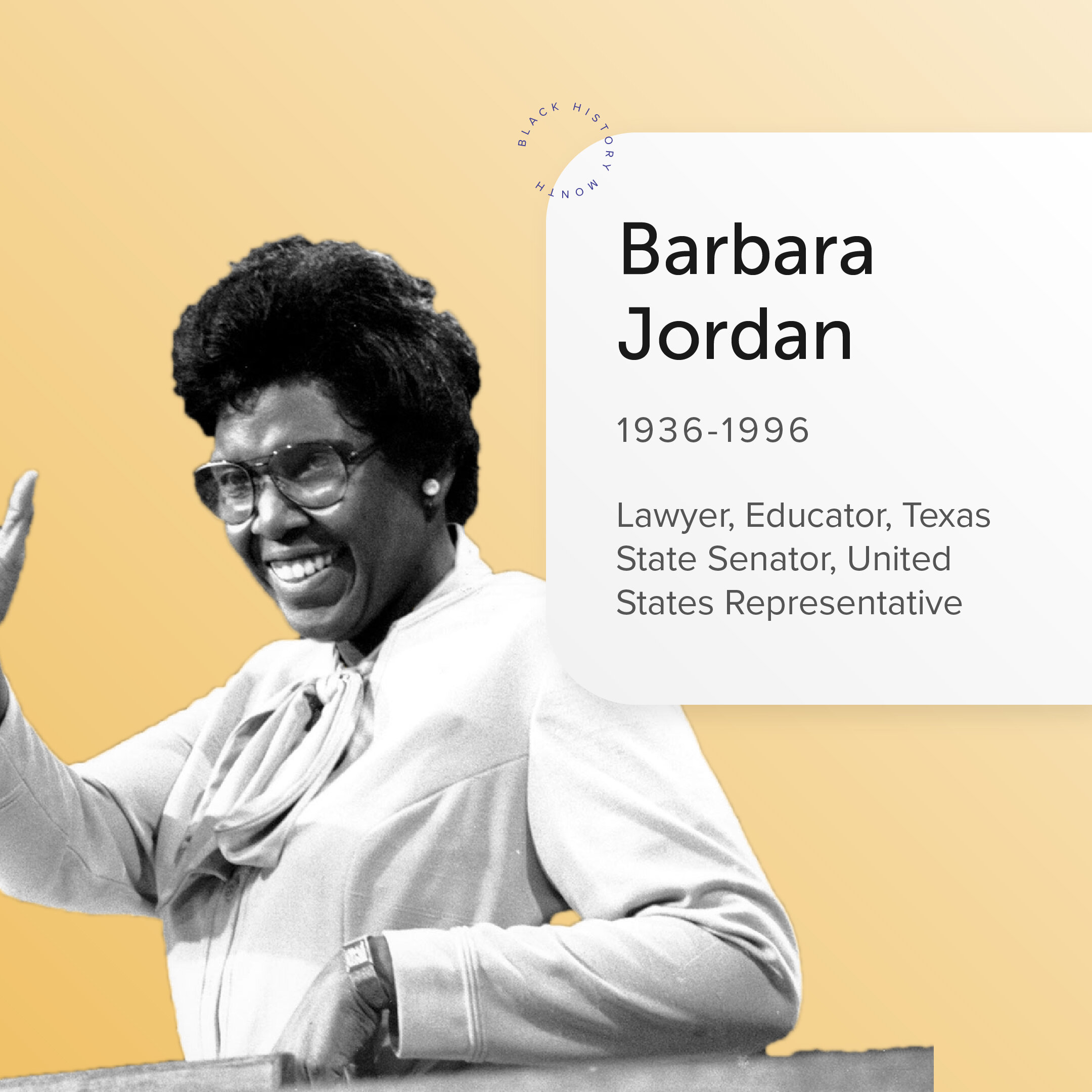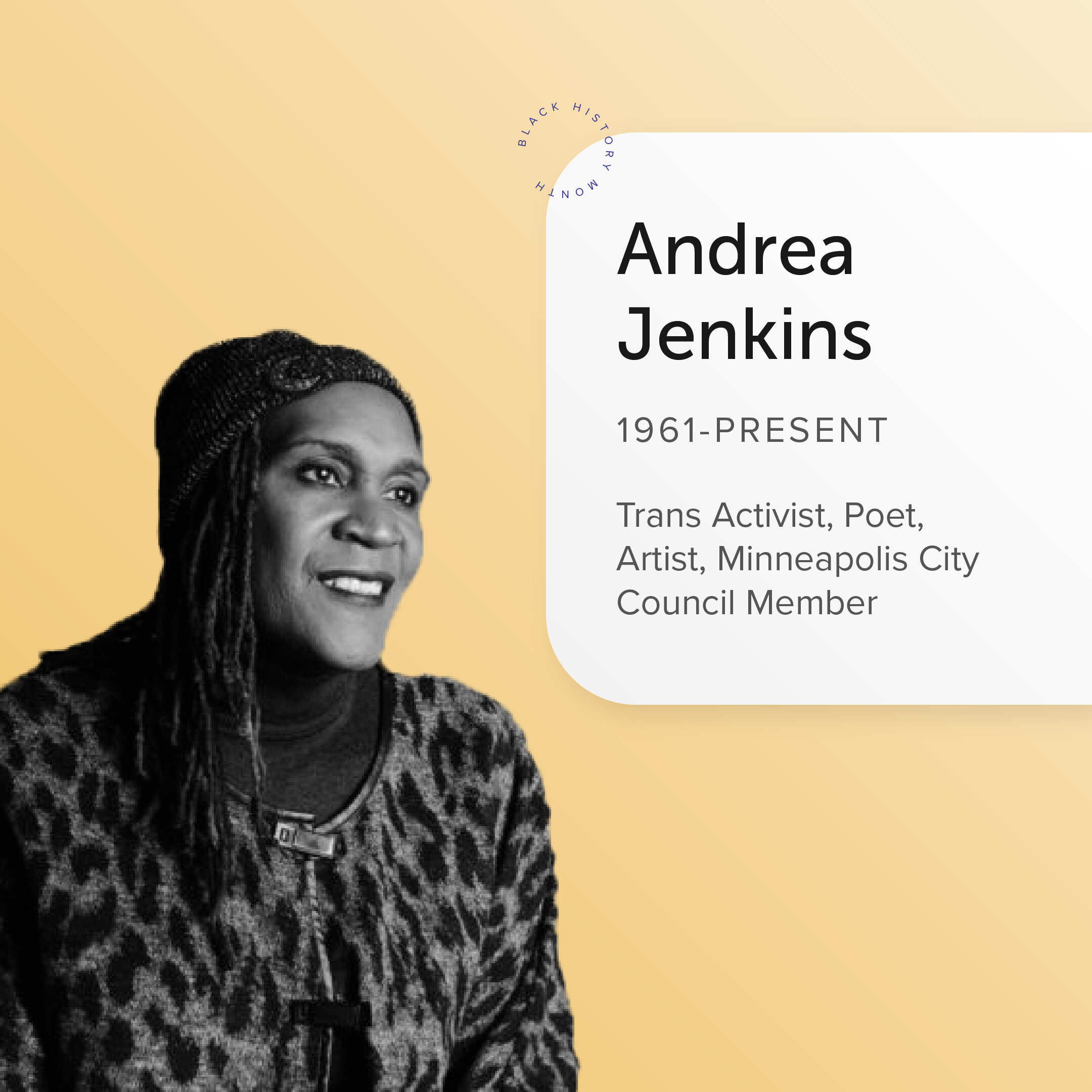Reflections and Highlights from Black History Month
Black history matters, and each and every one of us must be committed to justice, equity, and radical belonging—that means listening to Black voices, centering Black experiences, and elevating Black stories.
Black history is more than an annual observation for limited expressions of solidarity—it is rich and deep, and it mustn’t be compartmentalized.
LGBTQ+ people can march with gratitude and courage because of Marsha P. Johnson’s Pride; we can be drawn in by the experience of Blackness and queerness expressed in the poetry of Audre Lorde; we can join the historic cry of Black Lives Matter that young Black and LGBTQ+ activists have centered in our global conversations about justice.
This #BlackHistoryMonth, we’ve highlighted some of the Black LGBTQ+ individuals throughout history whose resistance to white supremacy, heterosexism, and outright violence must be remembered and honored. We’ve celebrated Black excellence while sharing story after story of overcoming, in spite of rampant violence against Black bodies, a reality that pervades society to this day.
Black lives matter.
Black trans lives matter.
Black history matters.
Spend some time reading about each of these highlights below, and use this as a starting point to engage with Black history, particularly as it intersects with LGBTQ+ history.
This is Alvin Ailey, a gay, Black activist, dancer, and world-renowned choreographer known for founding the Alvin Ailey American Dance Theater in 1958 in New York.
In just their first 10 years, Ailey's ensemble would tour the world performing their signature work "Revelations", embarking on a 10-country tour of Africa, and even performing for President Johnson at the White House. They would continue to tour the world, performing at inaugurations, in prestigious concert halls, and more.
Ailey was committed to justice and equity, working to promote arts in education and developing programs for underserved communities. A recipient of various consequential awards and honors, Ailey died of an AIDS-related illness in 1989 at the age of 58.
We encourage you to learn more about his work and legacy by visiting AlvinAiley.org.
Congresswoman Barbara Jordan was the first Black woman elected to the United States House of Representatives from the state of Texas and the south.
Previous to her work in Congress, she was a prominent figure in the Civil Rights Movement, working as an educator and an attorney for much of her life.
She was also the first Black woman to be elected to the Texas State Senate. Rep. Jordan spent her life advocating for policies that would benefit underserved communities, particularly those experiencing poverty. For her work, she was awarded the Presidential Medal of Freedom in 1994.
While never making it explicitly public, Rep. Jordan was partnered for nearly 30 years with a woman named Nancy Earl. We're grateful for her legacy and inspired by her pursuit of justice and equity for all. Learn more about her on the US House website.
Andrea Jenkins was the first Black, openly trans woman elected to public office in the United States, serving since 2018 as a Minneapolis City Council member.
An artist, poet, and activist, she describes herself as living "at the intersection of L.G.B.T. politics and racial injustice" (NYT) and works every day for social justice and equity. She is now the Vice President of the Minneapolis City Council, working to elevate the needs of underserved constituents, advocating in particular for access to healthcare, living wages, and protections for LGBTQ+ people in her city.
We're so grateful for Councilwoman Jenkins and her pursuit of justice, and her moral and spiritual leadership inspires us to cultivate the radical belonging at the heart of all we do.
Ernestine Eckstein was a Black, lesbian woman at the forefront of the United States Lesbian and Gay Rights and Civil Rights Movements in the 1960s and beyond.
Ernestine served as Vice President for the Daughters of Bilitis' New York chapter, the first lesbian civil rights organization in the country. In 1966, she became the first Black woman to be featured on the cover of their magazine.
She would later move to San Francisco, joining the Black feminist movement of the 1970s and Black Women Organized for Action, where she would continue to organize and advocate for civil rights.
We're inspired by Ernestine's commitment to rights and equity for LGBTQ+ people, and in particular, the manner in which she centered the concerns and experiences of Black LGBTQ+ people. May her vision of community and relational justice be fully realized in our world.





